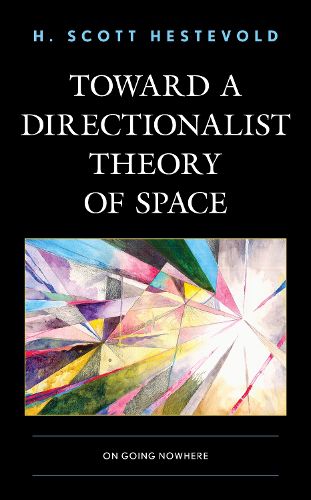Readings Newsletter
Become a Readings Member to make your shopping experience even easier.
Sign in or sign up for free!
You’re not far away from qualifying for FREE standard shipping within Australia
You’ve qualified for FREE standard shipping within Australia
The cart is loading…






In Toward a Directionalist Theory of Space: On Going Nowhere, H. Scott Hestevold formulates a new relationalist theory of space by appealing to the view that the universe is directioned in the sense that there exist directional relations-a class of spatial relations that Leibniz overlooked. Extending the directionalist/relationalist theory of space to the problem of when it is that discrete objects compose a whole, Hestevold revisits his answer to the Special Composition Question. He also uses the directionalist/relationalist theory to formulate reductivist theories of boundaries and holes-theories that may allow one to resist the view that boundaries and holes are ontologically parasitic entities. Finally, he explores directionalism/relationalism vis-a-vis spacetime. After noting findings of modern physics that favor substantivalist spacetime and then developing metaphysical concerns that favor instead directionalist/relationalist spacetime, Hestevold notes the ontological benefit of endorsing spatiotemporal directional relations even if spacetime substantivalism is the winning theory.
$9.00 standard shipping within Australia
FREE standard shipping within Australia for orders over $100.00
Express & International shipping calculated at checkout
In Toward a Directionalist Theory of Space: On Going Nowhere, H. Scott Hestevold formulates a new relationalist theory of space by appealing to the view that the universe is directioned in the sense that there exist directional relations-a class of spatial relations that Leibniz overlooked. Extending the directionalist/relationalist theory of space to the problem of when it is that discrete objects compose a whole, Hestevold revisits his answer to the Special Composition Question. He also uses the directionalist/relationalist theory to formulate reductivist theories of boundaries and holes-theories that may allow one to resist the view that boundaries and holes are ontologically parasitic entities. Finally, he explores directionalism/relationalism vis-a-vis spacetime. After noting findings of modern physics that favor substantivalist spacetime and then developing metaphysical concerns that favor instead directionalist/relationalist spacetime, Hestevold notes the ontological benefit of endorsing spatiotemporal directional relations even if spacetime substantivalism is the winning theory.